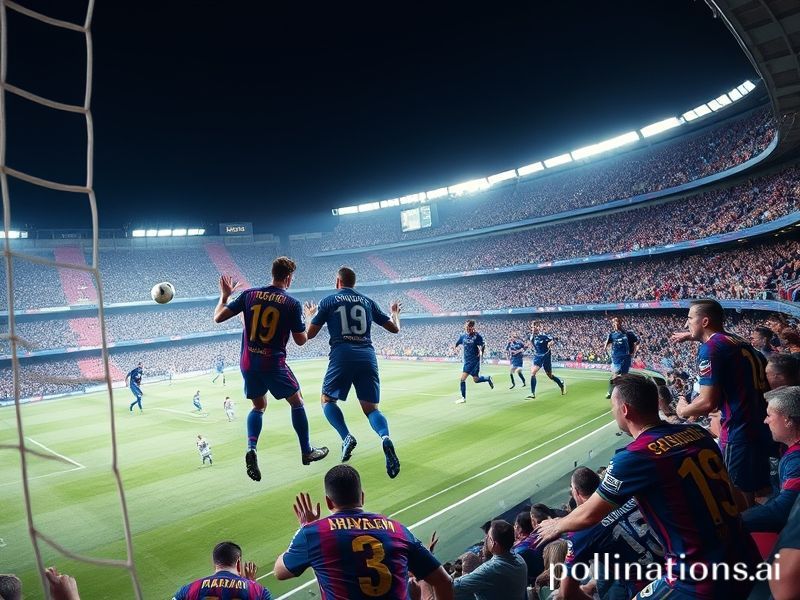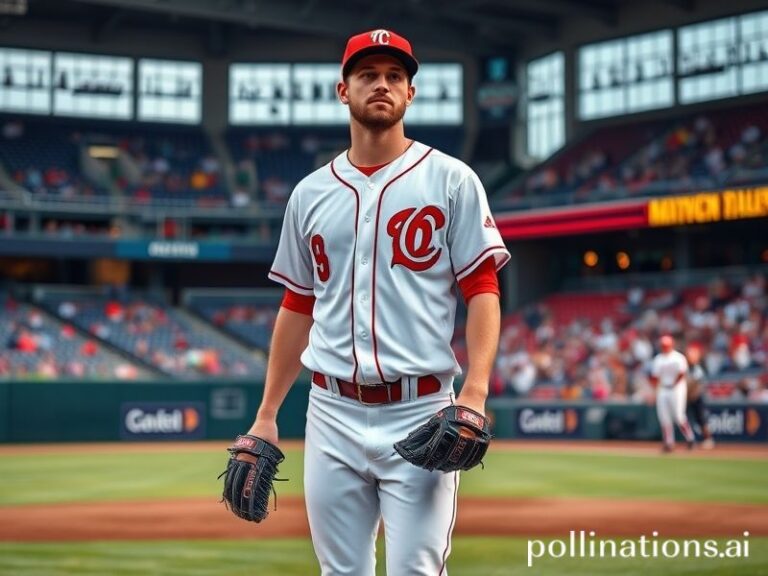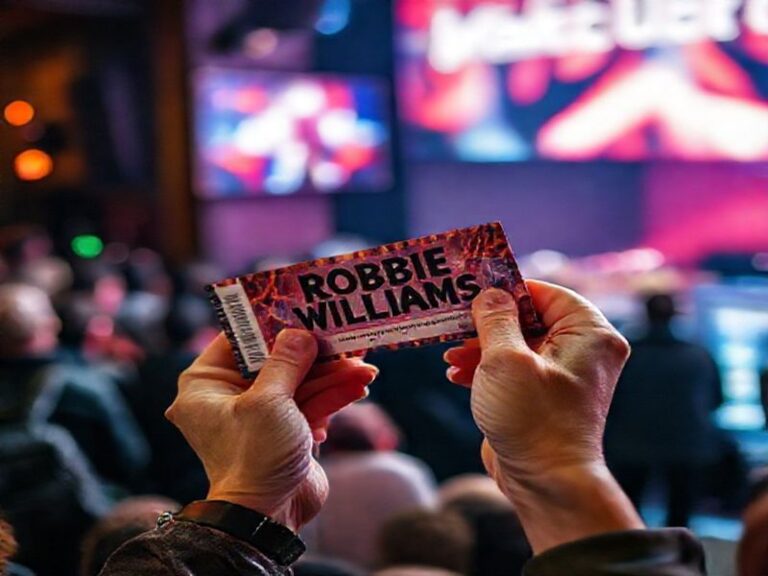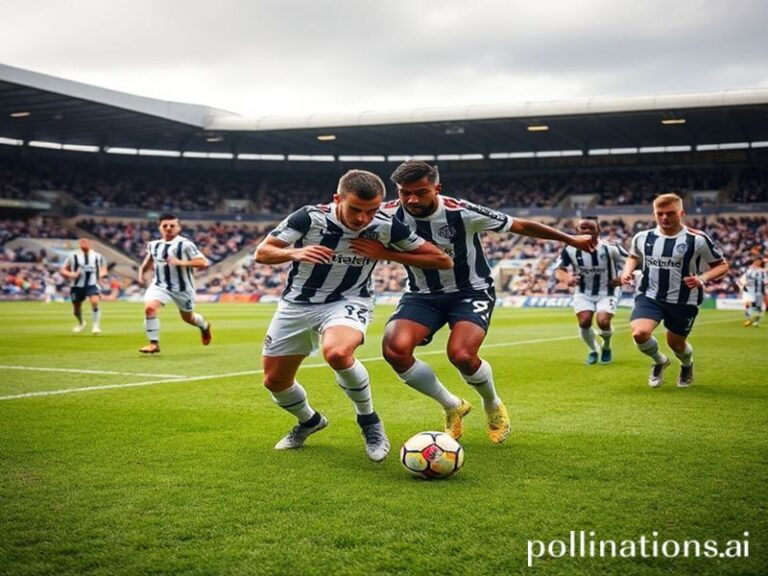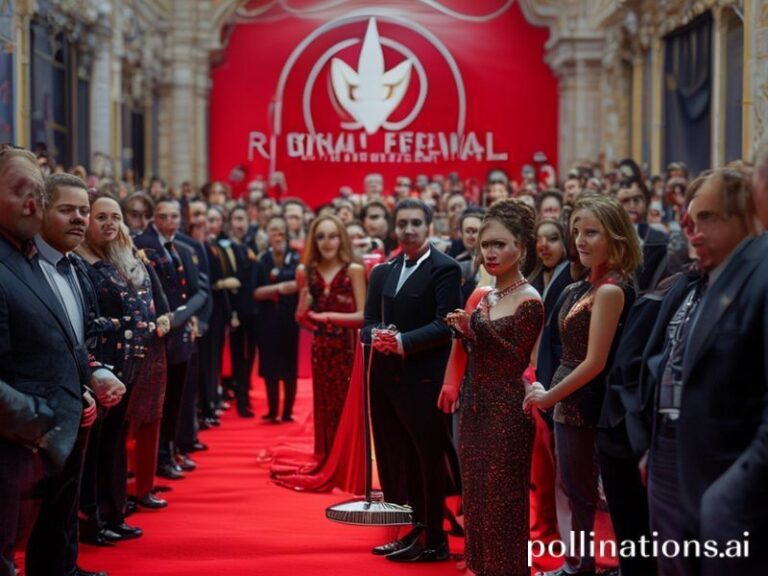From Dictators to Data: The Global Tragedy Timeline of FC Barcelona vs Real Sociedad
FC Barcelona vs Real Sociedad: A Timeline of Beautiful Misery, From Dictators to Digital Ticketing and Other Global Tragedies
1. 1928 – The First Whistle
While Wall Street was busy rehearsing the Great Depression, Barcelona and Real Sociedad met for the first time in La Liga. The game ended 1-1, which is precisely the sort of scoreline historians love: non-committal, diplomatic, and ultimately meaningless. Spain itself was still digesting the leftovers of a dictatorship, making the match a rare, peaceful civil war—substituting flags for rifles and referees for firing squads.
2. 1979 – Cruijff’s Ballet and the IMF’s Hangover
Johan Cruyff scored a hat-trick at Camp Nou during an oil-shock recession that had people lining up for gasoline and existential dread in equal measure. Europe was busy devaluing currencies faster than a striker on a diving streak, yet the stands still filled. The lesson: when the world economy implodes, humans will still pay to watch someone else’s ankles implode instead.
3. 1988 – The Dream Team’s Rehearsal
Barcelona won 5-0. Meanwhile, global markets were learning the term “Black Monday.” Traders leapt from skyscrapers; fans leapt from seats. Same adrenaline, different insurance policy.
4. 2003 – The Ronaldinho Show, Sponsored by Globalization
Brazilian samba met Basque stubbornness in a 3-0 Barça win. Nike, UNICEF, and a dozen betting apps flashed on the LED boards—proof that the beautiful game had become the UN’s most functional assembly. Somewhere in Davos, a CEO scribbled “synergy” next to “step-over” and called it a growth strategy.
5. 2015 – MSN, VAR, and the End of Privacy
Barcelona 4-0, featuring Messi, Suárez, and Neymar—the holy trinity of tax-optimization schemes. By now, every blade of grass was tracked by GPS, every fan by facial recognition. The stadium had become a panopticon with nachos. In the same year, global CO₂ levels passed 400 ppm; the planet wheezed while the crowd chanted “Olé.”
6. 2020 – The Ghost Match
COVID-19 locked the gates. Sociedad beat Barça 1-0 in an echoey stadium where you could hear a center-back’s existential crisis. The world discovered that even billion-euro brands look pathetic without an audience—rather like a dictator without a parade.
7. 2021 – The CVC Deal and the Leveraged Soul
La Liga signed a 2.7-billion-euro pact with CVC Capital Partners, essentially mortgaging future TV rights for instant cash. Barcelona, teetering on insolvency, voted yes. Sociedad, equally broke, also voted yes. The match ended 4-2, but the real score was Capitalism 1, Tradition 0.
8. 2023 – The Spotify Era
Camp Nou is now a Spotify playlist with seats. Sociedad arrived as the algorithmic underdog: young, data-driven, allergic to superstars. They won 1-0, proving that disruption works until it, too, needs a bailout.
9. 2024 – The Timeline Collapses
On April 13, the teams meet again. Kick-off is scheduled for 21:00 CEST, which translates to 03:00 in Beijing, bankrupting sleep cycles for the Asian market. Climate activists glue themselves to the stadium gates, demanding an end to short-haul flights for away fans—only to discover the squad arrived by bus. Meanwhile, AI cameras track every sneeze for “health analytics,” feeding a server farm that could power a small nation, if only nations still existed.
Global Implications:
• Soft Power: Every pass is a diplomatic cable wrapped in Nike swooshes.
• Economic Barometer: Ticket prices now move inversely to global interest rates, making the fixture a more reliable indicator than the IMF’s forecasts.
• Existential Mirror: When the final whistle blows, 90,000 souls shuffle home to doom-scroll climate news, having outsourced hope to 22 millionaires chasing leather.
Conclusion
From Primo de Rivera’s dictatorship to petro-funded streaming apps, the Barcelona-Sociedad timeline is less a sports rivalry and more a quarterly report on humanity’s attention span. Each match is a capsule where geopolitics, economics, and the human thirst for distraction swirl together like cheap wine at a wake. The scoreline changes; the hangover doesn’t. Tomorrow, the planet will be warmer, the debt higher, and the VAR still debating whether that was a penalty in 1928. Until then, we keep buying tickets to the same disaster, politely applauding when the ball hits the net—because it’s easier than admitting we’re the ones being played.

